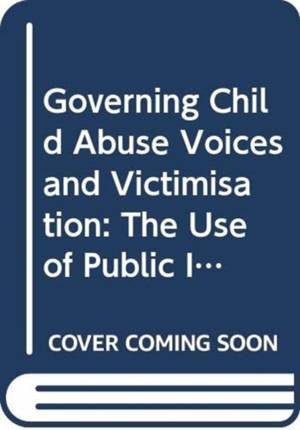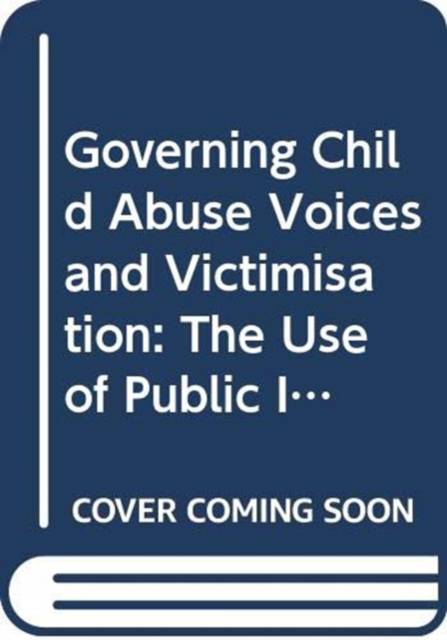
- Afhalen na 1 uur in een winkel met voorraad
- Gratis thuislevering in België vanaf € 30
- Ruim aanbod met 7 miljoen producten
- Afhalen na 1 uur in een winkel met voorraad
- Gratis thuislevering in België vanaf € 30
- Ruim aanbod met 7 miljoen producten
Governing Child Abuse Voices and Victimisation
The Use of Public Inquiry Into Child Sexual Abuse in Christian Institutions
Jodi DeathOmschrijving
Child sexual abuse by clergy within the Roman Catholic Church has emerged as a social and political discourse over the last three decades. The analysis here specifically focuses on the establishment, conduct, and outcomes of the extensive public inquiries of Australia, although inquiries in other jurisdictions are also discussed. Unlike criminal or civil processes, although they may be inquisitory in nature, public inquiries emerge from a specifically political context and are a tool of governance embedded in a larger context of governmentality. Understanding the broader political and cultural contexts of public inquiries is important, then, in understanding their value and effectiveness as justice processes - especially for victims of CSA by clergy. What is interesting about public inquiry is that it situates victims of CSA by clergy outside of criminal and civil justice processes and recognises a different politicised relationship between victims as citizens, the state, and Catholic institutions where abuse has occurred.
At the cutting edge of disciplinary and methodological understandings of the interconnections between the church, state and families, his book explores the dynamics of the emergence and politicisation of victims of CSA by clergy, their expressions of resistance and the legitimisation of their voice in public and political spheres.
Specificaties
Betrokkenen
- Auteur(s):
- Uitgeverij:
Inhoud
- Aantal bladzijden:
- 162
- Taal:
- Engels
- Reeks:
Eigenschappen
- Productcode (EAN):
- 9780367228156
- Verschijningsdatum:
- 14/01/2020
- Uitvoering:
- Paperback
- Formaat:
- Trade paperback (VS)
- Afmetingen:
- 156 mm x 233 mm
- Gewicht:
- 329 g

Alleen bij Standaard Boekhandel
Beoordelingen
We publiceren alleen reviews die voldoen aan de voorwaarden voor reviews. Bekijk onze voorwaarden voor reviews.











